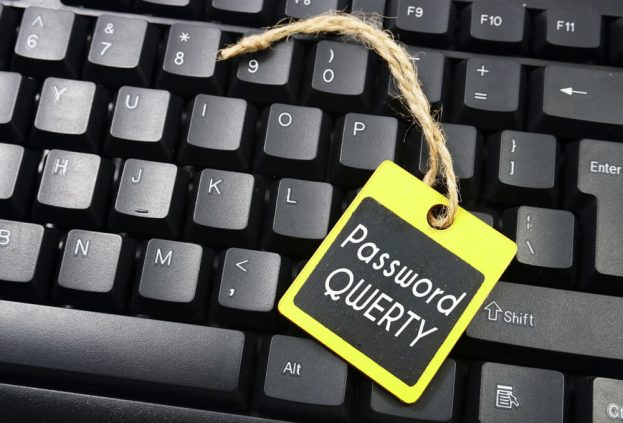Passwords are practically everywhere, you come across the password input field when you start your computer. If you have not chosen a password there, you will be “forced” to enter your password when you log in to your e-mail inbox or social media accounts. Despite everything, passwords are usually kept much too simple and are also used for several accounts at the same time. In this article, you can find out which mistakes you can avoid when choosing your password.
The 5 Most Common Password Mistakes
1. Simply Chosen
Passwords
Passwords like "12345" or "password" are
unfortunately still chosen far too often despite the known uncertainty. They
are even among the top 5 most popular passwords. Such passwords can be
read out in a few seconds. The use of family names and/or birthdays does
not increase the security of your password in any way. Such sequences of
numbers can also be found out in a few seconds.
Tip: To choose a secure password, you should always pay
attention to upper and lower case letters. The use of special characters
and numbers also increases the security of your password. If you also work
with your password abroad, you should make sure when assigning your password
that special characters are also available on foreign keyboards. Just make
sure that you don't use too complicated drawing constructions. It is more
advisable to use multi-word constructions or entire sentences because the
length of a password is a decisive factor for security.
Example of A Secure Password
When assigning a password, you can come up with a phrase such
as: “Summer is over”. Then you capitalize the first and last letters in a
sentence and replace the letter “e” with a “+”. The result is a secure and
easy-to-remember password: “D + RSomm + RIsTVorb + I”.
2. Share Passwords
with Family and Friends
Anyone who has given their password to their friends or family
one time or another is already falling into the next trap. Passwords
should never be shared and sharing passwords for streaming services does not
exactly contribute to the security of your password. Therefore, make sure
that you never share your password and do not write it down digitally or in
writing. If you do want to hold onto your passwords, make sure you keep
them in a safe place.
3. Password
Recycling
Do you use the same password for at least 2 accounts? Then
you are already in the next security hole. Of course, it's more
comfortable if you only have to remember one password for several accounts. But
doing so increases your vulnerability to cyber attacks. Your password will
be found out for one account and thus enables access to all other accounts.
4. Save
Passwords
Even the most secure password, with upper and lower case,
special characters, and an appropriate length can quickly become worthless if
you save it. Saving it in a Word or Excel document on the computer's hard
drive is particularly fatal. In this way, the passwords can be sniffed out
by Trojans in a few seconds. A better - but also not a secure - solution
is to write down the passwords on paper. But that is not ideal either. The
safest solution is a password safe. Make sure you have a secure password,
which you should never write down!
5. Avoid
Changing Your Password if Your Current Password Is Strong Enough
Many users have been using the same password for years. This
can have consequences if your password is not sufficiently secure. However,
it is now advisable not to have to change the password. If you have chosen
a password beforehand that is secure enough, you shouldn't necessarily change
your password, because a password change usually leads to new passwords being
written down on pieces of paper or, even worse, in a document on the computer.
If you are advised to change your password on suspicion of
disclosure, for example by an email from PayPal or Twitter, then you should of
course do so.
Find free antivirus to keep your data more secure.

Comments
Post a Comment